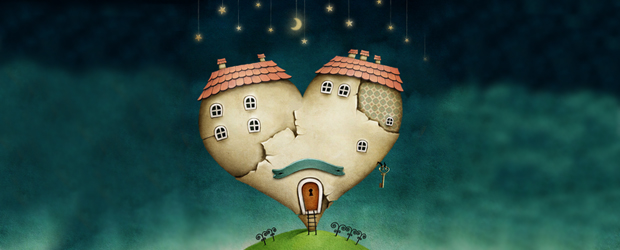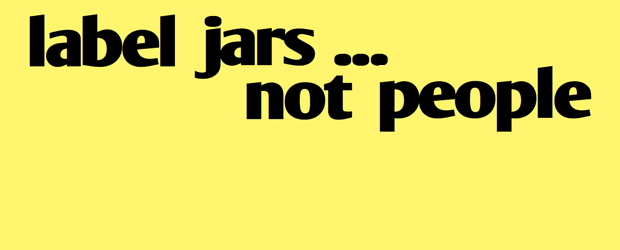
Would Michael Brown and Eric Garner still be alive if they weren’t black?
My resounding answer is “I don’t know.”
No one does. Not if they’re telling the truth. We’re all projecting our own life experiences, prejudices, and preconceived ideas about people of color and law enforcement all over these cases. It’s what people do, the mean and ignorant ones and the smart and humane ones.
The last few months I’ve been thinking a lot about what has shaped my own experiences with regard to race and law enforcement. I need to sort it through so I can enter 2015 with some clarity on an issue that is dividing us.
****
Back in the late 1980s I was in an art museum in Philadelphia with a friend I knew from grammar school. As we browsed the gift shop, she said to me in a low voice, “Can you believe the security guard is following us around when all these black people are in here?”
Knock me over with a feather. What? Where did that come from? I suppose back then, still in my 20s, I wasn’t prone to discussing politics or weighty matters with friends. We were more inclined to go out dancing or shopping than talk about race relations.
In the face of this awful comment, I said nothing. All the way home in the car, about an hour ride, I went over it again and again wondering if I misunderstood what she said. I knew I hadn’t. I never confronted her. And I kept chiding myself because I felt like my silence could be read as being complicit. I phased out the friendship.
In the decade or so after that, I worked for a Central Jersey newspaper and covered the high school and college sports beats as a reporter. It was there that I heard seasoned reporters rail at the injustice of calling a fight at a suburban school a ‘fight’ and when it took place at an inner city school calling it a ‘riot.’
The more entrenched I became in my beats, the more I fell in love with the work, the more I realized that the fears I grew up with in my suburban town were unwarranted. When it came time to have my photo taken for an advertising campaign at the newspaper, I chose one of those inner city schools as the backdrop. I’d come to enjoy covering games in that particular gym, known for its acoustics and lively atmosphere.
In the meantime, our newspaper building had a few regulars working security. One of them was an African-American man. He was very friendly and made no bones about admiring the female form. I never felt like he crossed the line. Each day he greeted me with this – “Nancy, if anybody tells you you’re not good looking, you send ‘em to me.” And then he’d laugh heartily. I’m pretty sure he used the line a lot.
One day when I left the building after an editing shift, about 1 a.m., he asked me for a ride. I hesitated and eventually said no. I think I made an excuse that I was meeting someone. On the way home, I asked myself if I would have given him a ride if he was white. I still don’t know the answer.
These are just some of the examples of race dialogue I’ve had with myself over the years. There are many more. I don’t know anyone who doesn’t have them, but it’s rare that we talk about them. About six years ago I was telling a friend and her husband that my place was broken into and that I’d run into the suspect as he was leaving the building.
“Black or white?” her husband asked in front of their children.
Here I was in a position again. Do I say, “What does it matter?” and call him out in front of his teen kids? Is it my place to lecture on race in this scenario? I went with a furrowed brow and look that said, “Really?” I still shake my head at the memory.
These ‘behind closed doors’ exchanges are taking place. So why do so many of our citizens think it’s out of the question that others might be thinking racist thoughts? What’s with the denial that it exists in every single profession? I’m not even talking about in the specific cases of Brown and Garner, but just in general. How do you tell people their reality is not their reality?
Circling back a bit, while all my aforementioned beliefs about race were being formed, so were my feelings about law enforcement. I’ve dated police officers. I had cousins who were on the police force. I was dismissed as a potential juror one year because I emphatically stated I was “pro-cop” and the case involved a policeman. I have never had anything but a positive experience with the police and I don’t believe the majority are riddled with prejudices. I believe they do a job that comes with great risk and that most do that job honorably.
****
Fast forward to 2014, where all of the above put into a blender equals what? Gray area?
While all that’s whirring away, let’s toss the Sony email breach into the mix. It’s related, you know. Another example of those things people say when they think no one will ever find out.
Surely no one can ever tell Jennifer Lawrence that she’s paranoid for believing her male counterparts might be getting paid more than she is after what was revealed in the breach. Again, what do people say when they think the conversation is private? They dissed Katniss, for goodness sake. Right there in black and white.
I made a point of not reading deep into the Sony emails, probably because after a man I loved died a few years ago his girlfriend gained access to his email account and every word I ever wrote him. I was horrified, but so happy I had never written a negative word about her. I had to let the whole thing go for my sanity, but this Sony breach brought that memory rushing back. After seeing two articles about it (obviously one about Jennifer Lawrence), I stopped reading. But I confess it has stayed with me. I can’t “unsee” it.
Bottom line, we know all kinds of things are being said behind closed doors and yet we act like we’re all above it (we’re not), like our every interaction is pure (they’re not), that we never say unkind things about another (we do).
It’s not that complicated, is it? This is what human beings do, some more than others.
Would Michael Brown and Eric Garner still be alive if they weren’t black?
I still don’t know. But I do know that asking the question is legitimate. Of that I have no doubt.






